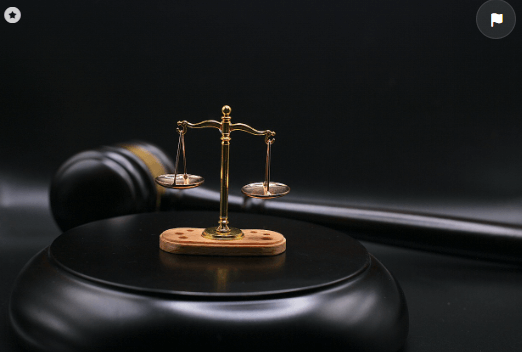In today’s society, lawsuits are an essential tool for settling legal issues and protecting justice. It is a legal action undertaken by one party against another in a court to obtain a resolution on a specific topic or disagreement. Overall, the Pain and suffering calculator serves as a valuable tool for assessing non-economic damages in personal injury cases.
It is important because it gives individuals a formal way to safeguard their rights, seek compensation, and hold others accountable for their conduct.
Lawsuits are a cornerstone of the system, encouraging fairness, equity, and the rule of law, and also as an obstruction to bad behavior. This essay examines several types of litigation and useful information about them.
Personal Injury Lawsuit
This lawsuit can be filed against an individual or a party due to whom someone has been injured or harmed physically or psychologically. It is also known as the ‘tort’ law.
Gathering proper evidence against the other party and working with the physician to document the extent of the damage is the attorney’s duty.
However, there are certain limitations with the filing. In every state, there is a time limit to file a personal injury lawsuit. For instance in California, lawsuits should be filed within two years of the injury caused.
As per the data, 96% of these lawsuits are settled conveniently. In rare occurrences though, if there is a serious injury or situation, there is a need to go to trial.
Surprisingly, there are at rare times, certain cases that are pretty weird to witness. An article by Casetext mentions an incident that happened in New York.
A woman tried to commit suicide by lying down on subway tracks. Instead of killing, the tracks injured her and she then sued the city for these injuries. As a result, the Supreme Court settled the case for $14.1 million.
Product Liability Lawsuit
A consumer can launch this case under a variety of scenarios, such as:
- If it was a manufacturing flaw, or if the product’s design was inherently harmful
- If there was a marketing flaw in which the product hazards were not communicated
- If the product breached the implied warranty
One of the current examples of this lawsuit is the Suboxone lawsuit for teeth and gum injuries. Suboxone is a medication that is used to prevent drug addiction. This lawsuit has been filed against several pharmaceutical companies claiming a marketing defect causing serious dental injuries.
Supposedly in 2022, the FDA mandated manufacturers to place caution signs on Suboxone packaging to notify consumers of potential tooth concerns. But plaintiffs claim that before the mandate, no consumer was warned about the risks.
As per TruLaw, the average settlement amount for this lawsuit ranges between $10,000 to $1,50,000 per claim depending on individual cases. As of April 2024, the pending lawsuits have been down to 44 from 51.
Wrongful Termination Lawsuit
When there is a case of the unlawful firing of an employee by an employer, this lawsuit can be filed as a counter-action. It is also called dismissal or wrongful discharge.
Wrongful termination claims might include firing due to discrimination, medical history, retaliation for complaint filing, the creation of a union, or without contractual cause.
The compensation for this lawsuit covers punitive damages, legal fees, emotional distress, loss of payment, and loss of benefits. According to Case IQ, it can generally cost a company between $50,000 to $2,50,000 of settlement amount.
Read also How AI Has Revolutionized Cybersecurity Services
One of the recent occurrences of this lawsuit happened in October 2023. The plaintiff was working for a company as a caregiver for elderly people.
She suspected that the company was misclassifying her as an independent contractor after two years of her tenure. When she tried to confront, the owner of the company fired her from the position.
She then filed a wrongful termination lawsuit which awarded her $3,000,000 as compensation against emotional distress.
Frequently Asked Questions (FAQs)
How long does a lawsuit typically take to resolve?
The duration of a lawsuit can vary significantly depending on various factors, such as the complexity of the case, court backlog, and settlement negotiations. Some cases may settle within months, while others can take several years to resolve.
Can I represent myself in a lawsuit?
Yes, you have the right to represent yourself in a lawsuit, which is known as acting “prose.” However, it is generally recommended to seek legal representation, especially for complex cases, as an experienced attorney can provide valuable guidance and increase your chances of success.
What is the statute of limitations for filing a lawsuit?
The statute of limitations refers to the legal time limit within which a lawsuit must be filed. It varies depending on the type of case and jurisdiction. It’s crucial to consult with an attorney to determine the specific statute of limitations applicable to your situation.
Can I appeal a court decision?
Yes, if you disagree with a court’s decision, you generally have the right to appeal to a higher court. The appeals process involves presenting arguments to the higher court, challenging legal errors or unfairness in the previous decision.
It is important to seek compensation if you have wrongfully suffered at any place and time. The judiciary helps bring justice to the rightful. If you are planning to file a lawsuit, keep certain things in mind.
Select a legal team or an attorney with a strong record of winning as they are more experienced. Secondly, be clear and precise to them. Do not hide any kind of details from your attorney.
And lastly, try to gather as much evidence as you can from your side beforehand. It may help to strengthen your case and with your attorney’s research.
Always remember, justice is rightfully served to the one who deserves it!

